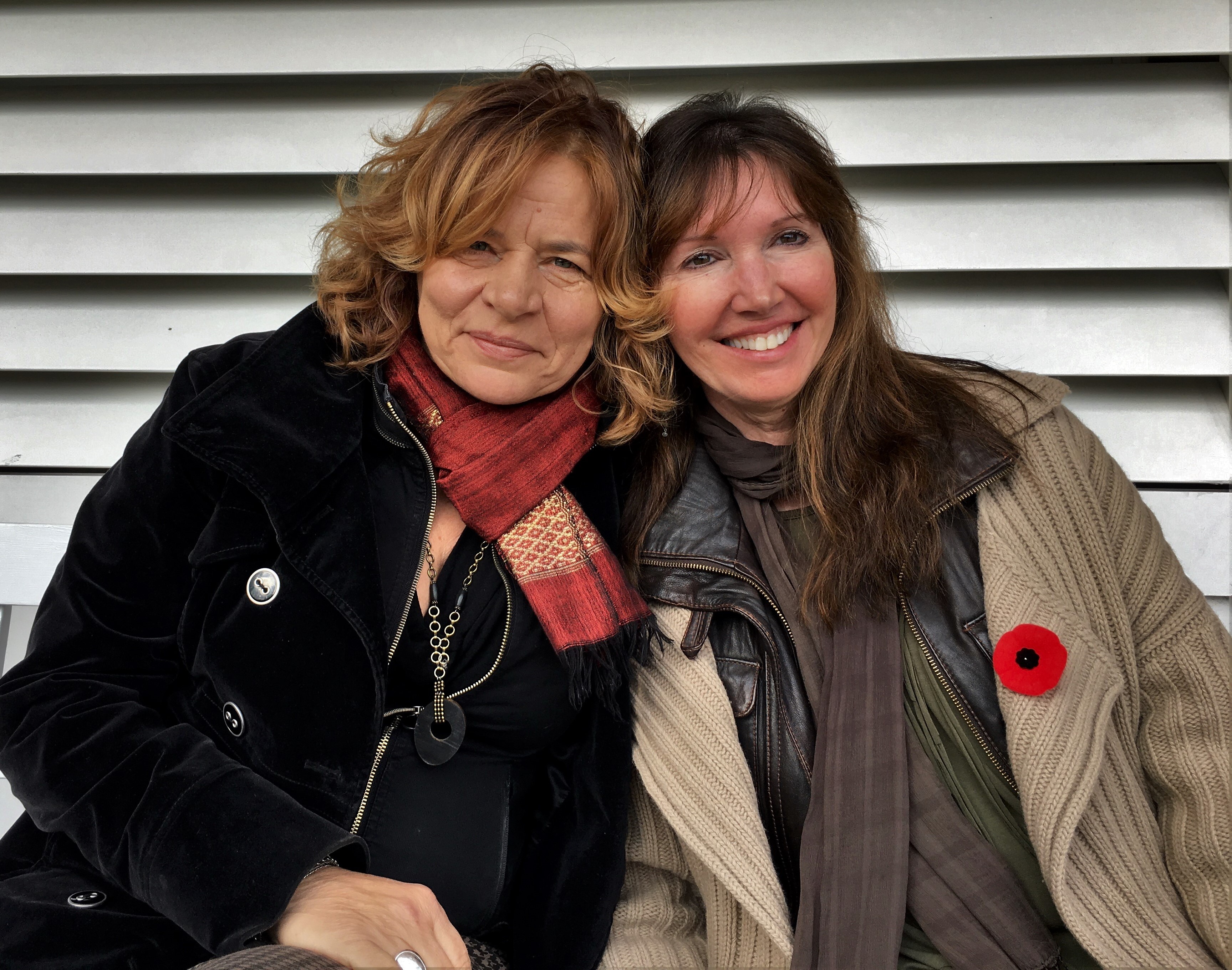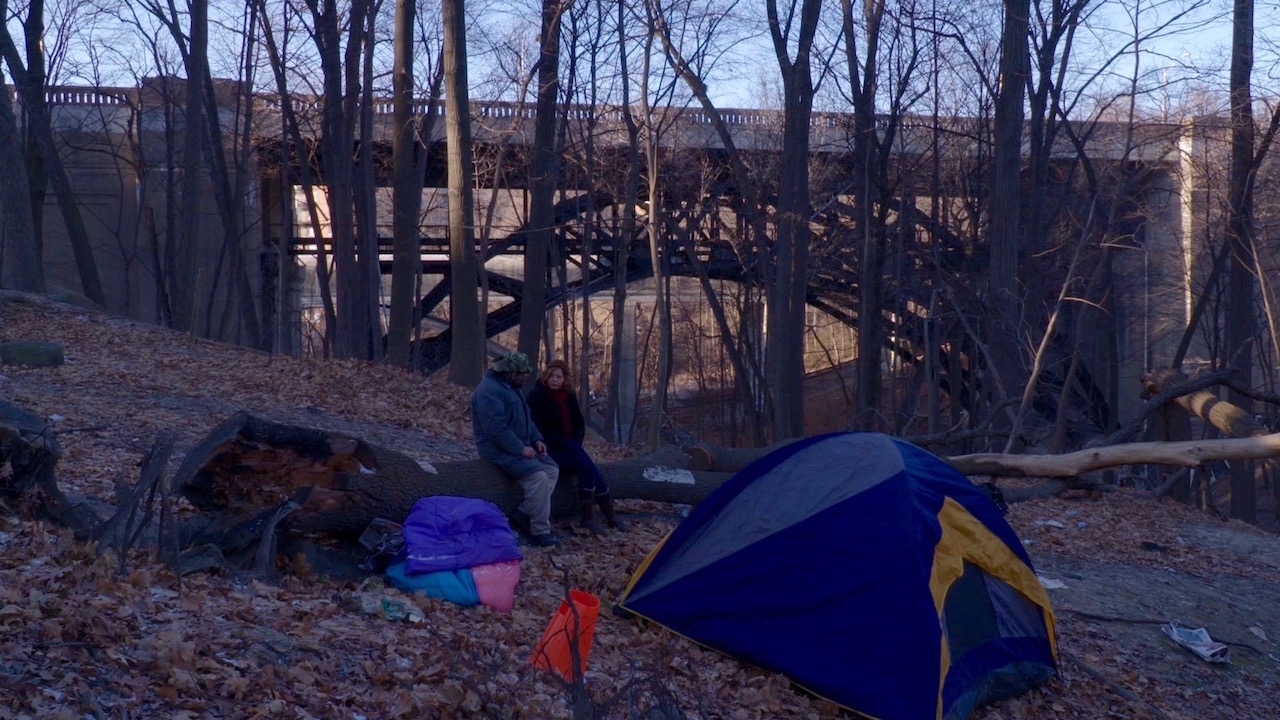The Rosedale cafe where I meet Lorraine Segato and Shelley Saywell is full of Macbooks, well-dressed couples, and the sort of young families that look like they've stepped straight out of the glossy pages of magazines or condo brochures. It's an unseasonably warm November afternoon, so we sit out on the patio, right in the heart of one of Toronto's—and Canada's—wealthiest neighbourhoods.
The Emmy Award-winning director Saywell and Juno Award-winning musician Segato joined forces to create Lowdown Tracks, a documentary that explores the world of Toronto's homeless musicians. While their melodies ring through the city's streets, subway stations, and public parks, the people behind them—and Toronto's homeless population in general—remain largely ignored. Sitting on a patio in Rosedale, that world is easily and all too comfortably forgotten. Lowdown Tracks—airing November 14th on TVO—seeks to change that.
 Lorraine Segato and Shelley Saywell, image by Stefan Novakovic
Lorraine Segato and Shelley Saywell, image by Stefan Novakovic
While everything around us looks manicured and pretty "there's a whole other world, just a couple blocks away in the ravine," Segato tells me, describing the gatherings and temporary shelters that spring up throughout Toronto's ravines. "It's a reality that we never really see," Saywell adds, "not because it isn't there, but because we've conditioned ourselves not to see it, even if it's right in front of us on the street." In our cultural landscape, the issue of homelessness itself remains in some ravine below our horizons, where we are chronically unwilling to look. "We wanted to make that invisible reality visible," Saywell tells us.
It's in a ravine that the film begins, Saywell's sensitive camera following Segato's footsteps into a clearing occupied by a lonely tent. In the opening shots, we meet Bruce Bathgate, whose tent is "home," or as close to home as anything gets, "ever since the shelters filled up." Like the film's other stars, Bruce is a homeless musician, struggling to eke out a living on the margins of an increasingly stratified society. "Oh yeah, it's been cold," Bathgate tells Segato, breath fogging up as he emerges from the tent, greeting Segato like an old friend.
 Bruce Bathgate and Lorraine Segato, image courtesy of GAT
Bruce Bathgate and Lorraine Segato, image courtesy of GAT
Lowdown Tracks also follows Maryanne Epp, Kate Budd, Anthony van Zant and Woody Cormier on their journeys along the economic fringes of Toronto. Some are homeless by necessity, and some are "home free" by choice, but traumatic pasts and painful memories are a common thread of the musicians' lived experiences. For some, the stories about assault, mental illness, and personal tragedy are too hard to talk about.
Where words alone can't express the depth our the complexity of lives lived, music steps in to tell the stories that won't—or can't—be spoken. While the guitars aren't always in tune, and the voices sometimes crack, the songs carry a raw sense of immediacy rarely found in more polished and professionally produced music.
The din of the city and the realities of street life are there as accompaniments to a music that often channels the symbolic power of exorcism, transmuting the sometimes inexpressible pain and hard-won knowledge into music that—though often still expressing suffering—digests these experiences into art:
"We didn't make the film to help everyone become a famous musician, though," Segato reminds us, "we think that music makes lives more easily relatable, drawing the viewer in." Saywell's documentary presents the stories and the song just as the musicians tell them, without added melodrama or spectacle, and without resorting to heavy-handed appeals or manipulations of the viewer. The raw truth is powerful enough.
*
Lowdown Tracks will premiere on TVO on November 14th at 9 PM, and will be re-broadcast several times before November 22nd (a full broadcast schedule is available here). In addition, the documentary will be shown as part of the Regent Park Film Festival, with a screening at Daniels Spectrum on November 21st.

 2K
2K 









































